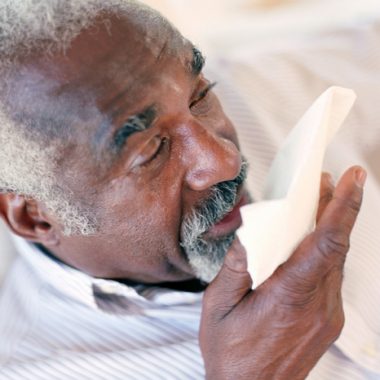Tell patients not to consult GP with cold or flu symptoms, says NICE

Practices should tell patients to go to a pharmacist or consult NHS Choices for minor complaints like cough, flu or earache instead of making an appointment with their GP, under advice from NICE aimed at raising awareness of the need to cut down on inappropriate antibiotic use.
NICE said in a draft guideline titled Antimicrobial stewardship – changing risk-related behaviour in the general population that the public should be informed ‘in health care settings’ such as GP surgeries how to recognise when they have a self-limiting condition and how to treat it at home.
The guidelines add that patients should be told ‘GPs or A&E should not be the first point of call’, and ‘encouraged to use pharmacists and other reliable health resources such as NHS Choices’ instead.
A NICE spokesperson said the recommendations to provide this information could also ‘be aimed at national agencies with a remit for public health, NHS England regional teams, and NHS trusts’.
Meanwhile the guidelines call for ‘national and local campaigns’ on how to stop the spread of infections, through measures like handwashing and safe food storage.
The draft guidelines come after NICE chiefs recently said that GPs who ‘persistently over-prescribe’ antibiotics should be referred to the GMC, under antimicrobial stewardship guidelines aimed at doctors and NHS managers that were published last month.
NICE subsequently moved to appease the GPC over the comments, but GP leaders called for a national advertising campaign to help the public understand the need to limit antibiotic use, rather than relying only on measures supporting GPs to improve appropriate prescribing.
The latest proposed guidelines aimed at the public will be published in final form next year.
Visit Pulse Reference for details on 140 symptoms, including easily searchable symptoms and categories, offering you a free platform to check symptoms and receive potential diagnoses during consultations.









